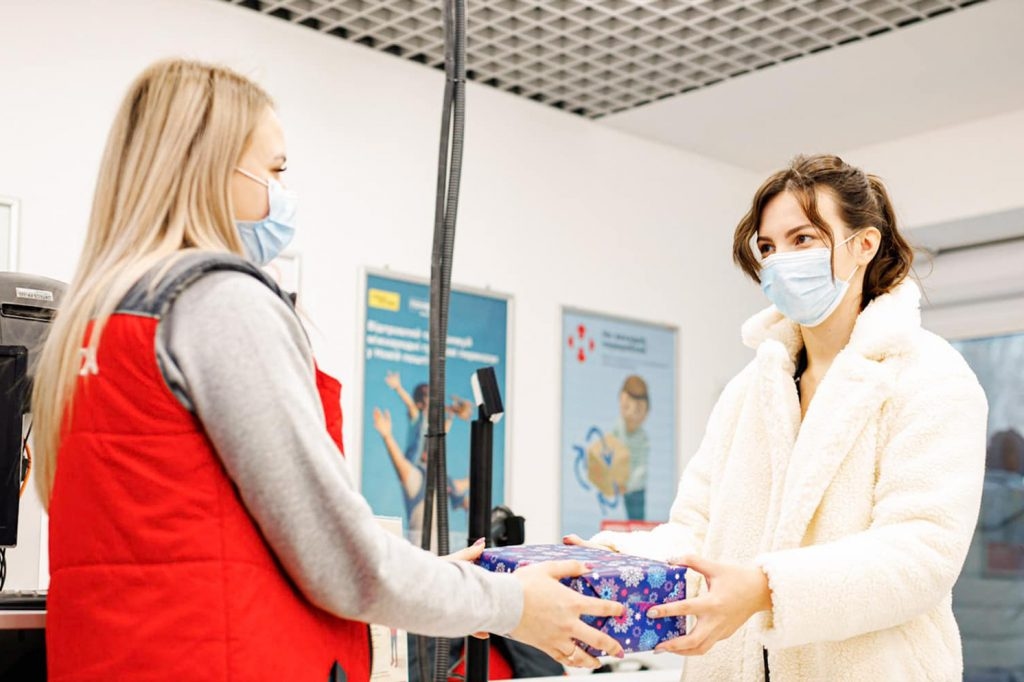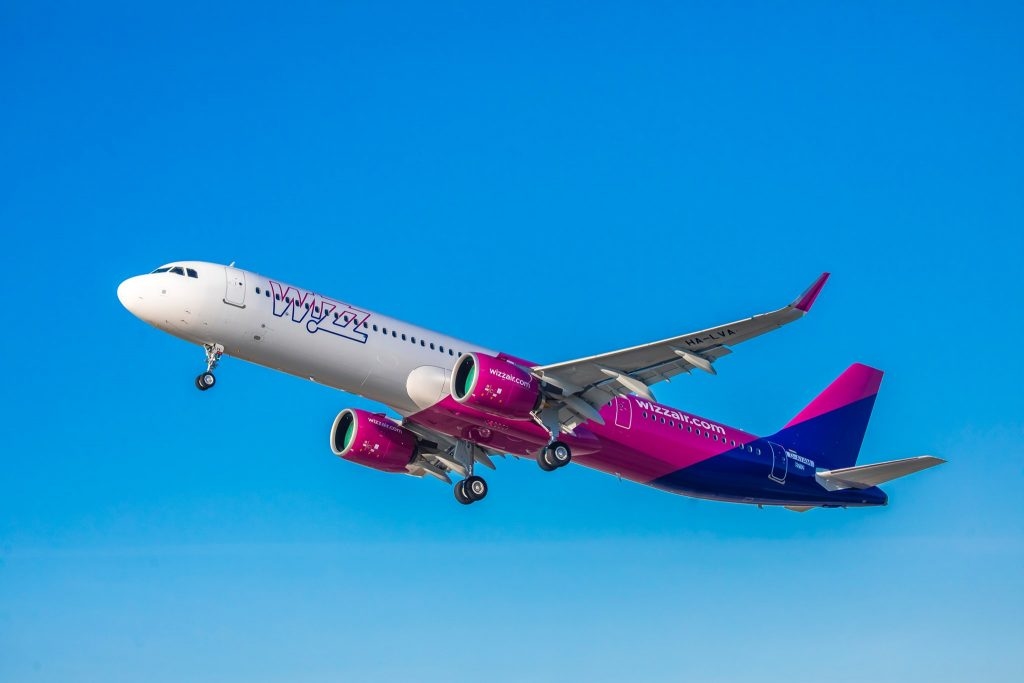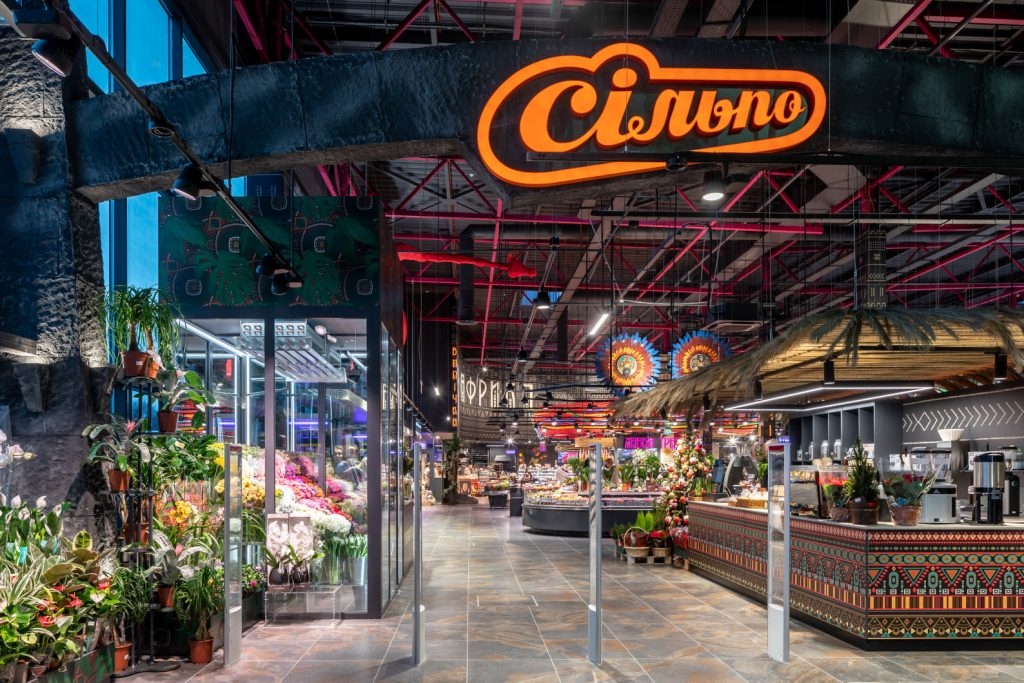10 companies that made Ukrainians’ lives easier in 2021

The year 2021 was challenging for Ukraine due to lockdowns, anti-epidemic measures and a difficult economic climate.
Inflation peaked at 11% this year, driving up prices on food and energy. According to the State Statistics Service, 67% of Ukrainians declared themselves "poor" in 2021.
But the Ukrainian economy also showed signs of resilience. According to the National Bank of Ukraine, the pandemic did not slow consumer spending, one of the largest drivers of the economy.
Major companies, both domestic and international, innovated to adapt to new pandemic restrictions, creating accessible and convenient services for the Ukrainian market.
In the third quarter of 2021, consumer spending in Ukraine reached nearly Hr 600 billion, down from a record high of Hr 635 billion in the recovery period following Covid restrictions at the end of 2020.
We spoke to Kyiv residents about their favorite companies and services that they used this year.
- Bolt: Estonian mobility company

Bolt has grown rapidly since it entered the Ukrainian market in 2016, but was not able to keep up with its competitors and pulled out of the market. It returned two years later and quickly expanded its service to most major cities in the country. According to start-up monitoring publication Sifted, the Estonian company has received $1.3 billion in investment globally since launch.
The company offers a variety of services, including taxi and food delivery. But its most visible impact was transforming Kyiv into a city of scooters.
Bolt was the first of many electric rental scooters to appear on Kyiv's streets in August 2020. The scooters drew controversy over their frequent use on Kyiv's pavements, which led to accidents. As of July, an emergency room in Shevchenkivskyi district hospital was reporting on average six accidents a month. Despite the controversy, Bolt claims that the benefits outweigh the accidents, with users reporting only 2.5 incidents per 100,000 trips between April. 1 and Nov. 30, 2020.
New rules passed in Kyiv mean that scooters are now limited at 20 kilometers per hour in order to avoid accidents, as well as further restrictions on their use in pedestrian areas.
Bolt's bright green electric rental scooters can now be seen everywhere throughout the city during the warmer months, unlockable via a Bolt smartphone app. The company markets them as an eco-friendly alternative to private transport and claims to have been carbon-neutral since 2019.
For many Ukrainians these scooters are a viable alternative to crowded public transportation or expensive taxis during the pandemic.
Robert Markov, a Kyiv resident, made 64 Bolt scooter journeys in one year. Markov says that he used them weekly, as he lives in an area with poor public transport. The scooters offered a fast and affordable way to avoid congested roads and crowded metros.
2. Akvamarket: bottled water delivery
According to water utility company Kyivvodokanal, Kyiv’s drinking water is safe and complies with all legal standards. Many Kyiv residents, however, are not convinced -- some have complained that their tap water is cloudy or yellow.
Some instead rely on bottled drinking water, something the International Association for Medical Assistance to Travellers (IAMAT) advises tourists to do. Water delivery companies collect and replace office water cooler bottles for use at home.
According to research published by Ukrainian news site Ekonomichna Pravda, 40% of Kyiv residents regularly buy drinking water. In 2019, the total revenue of the six largest producers of mineral water amounted to almost UAH 1 billion ($37 million).
Anna Danilevskaya swears by Ukrainian water delivery company Akvamarket, which delivered fresh water to her apartment throughout the pandemic. Danilevskaya says that the company always delivered at the same time every week and at affordable prices for her family.
3. Nova Poshta: Ukraine's leading private parcel service

Nova Poshta, Ukraine's leading express postal service, is now a household staple. In 2020, the company delivered around 327 million parcels throughout Ukraine.
Spurred by increased levels of e-commerce during Ukraine's numerous lockdowns, Nova Poshta has developed new solutions to logistics in Ukraine. The company has expanded its use of electronic pick-up and drop-off points for parcels, allowing customers to skip queues to collect parcels at their local postal office.
Nova Poshta is also one of Ukraine's largest employers. As of November, the company provides jobs to over 32,000 people.
In 2022, Nova Poshta plans to use drones to deliver parcels between major cities.
4. Uklon: Ukrainian mobility company
First founded in 2010 by Ukrainian entrepreneurs Vitaly Dyatlenko, Serhiy Smus, Dmytro Dubrovsky and Victoria Dubrovska the taxi service Uklon is the biggest domestic competitor to foreign services like Uber and Bolt in Ukraine.
Unlike Uber, which allowed anyone to sign up and become a driver, Uklon was originally set up in collaboration with Ukrainian taxi companies, allowing taxi drivers to pick up customers in exchange for commission.
Now, like other taxi apps, the company allows anyone to sign up and become a driver, so long as they pass inspection.
Uklon distinguishes itself from its competition by allowing users to more precisely tell drivers where to pick them up, instantly book return trips and request English-speaking or non-smoking drivers.
Since its humble beginnings, Uklon now offers its services in 27 different cities in Ukraine. More than 2 million orders for taxis are made through the app each month, according to the company’s own statistics.
Vladyslav Faraponov, a student in Kyiv, said that he prefers Uklon to its competitors. “The service is good and I can always rely on them,” Faraponov says. He was also surprised to find that the app even worked in more remote cities -- he frequently used Uklon in Kropyvnytskyi, Kirovohrad Oblast.
5. Wizz Air: Hungarian low-cost airline

Even as Covid-19 restrictions made travel more difficult, low-cost airlines like Hungary's Wizz Air made it more accessible.
Wizz Air offers some of the cheapest tickets available to Ukrainians. A flight from Kyiv Zhuliany Airport to Gdansk in February costs just $17.91.
As travel restrictions eased during the summer, ticket sales boomed for Wizz Air. The company filled over 83% of seats in August, far outstripping demand in 2020.
The airline will expand aggressively in Ukraine next year, increasing the frequency of its flights by 120% in 2022 and adding an additional 18 new routes in Ukraine, taking advantage of 2021's pivotal changes to the aviation industry.
On Oct. 12, Ukraine was admitted into the European ‘Open Skies’ agreement that allows low cost airlines to fly to more Ukrainian cities without restrictions, opening the local market up to foreign competition.
Yaroslav Pryshchepa, originally from the Donbas, travelled to Italy on Wizz Air. He says that the low ticket prices meant that he could afford to travel during the pandemic and make the most of his holidays.
- MakeUp: Online cosmetics retailer
Established by Ukrainian entrepreneurs Evgeny Malev and Sergey Volobuev in 2009, MakeUp started as an online book business that did not work out. After finding a niche in online cosmetics retail, taking inspiration from Czech retailer Parfums, the company now operates in 13 countries.
Statista estimates that the revenue from the cosmetics market in Ukraine was over $230 million in 2020, and despite economic pressures from lockdowns, this figure is likely to be even higher for 2021.
MakeUp (makeup.com.ua) has an impressive selection, much of which it says it imports directly from Europe to customers. The site sells over 7,000 different kinds of face creams, 1,200 face powders, and 8,500 perfumes.
Yulia Kozyr was disappointed to find many cosmetics shops closed during lockdown but still wanted to wear her makeup. Kozyr highly recommended the online store this year, finding that MakeUp had an impressive selection of products, fast and convenient services, and lots of deals on cosmetics.
- Rozetka: Online retail
Unlike most countries in Europe, Ukraine does not have access to American e-commerce giant Amazon. Rozetka, founded in 2005 by businessman Vladislav Chechotkin, takes its place.
Rozetka serves as an e-commerce platform and logistics network for local Ukrainian businesses to sell their goods.
With help from Nova Poshta, it offers speedy delivery of products ranging from electronics to alcoholic drinks. The company even sells package holidays.
In 2008, Rozetka opened its first physical location in Ukraine. Later in 2016, to keep up with demand, it built a giant logistics center in Brovary near Kyiv, with a total area of nearly 49,000 square meters.
Multinational software company Adobe estimates that the Covid-19 pandemic made global e-commerce grow by 40% in 2020. Rozetka’s website was visited more than 44 million times this year, according to data from similarweb.
Kyiv resident Olga Kearley has used Rozetka for more than four years and says it has made her life much easier during the pandemic.
“They have everything, they make it super easy to get what you need,” Kearley said. “I’ve used them for 4 years. I bought everything from gadgets to pasta.”
- Silpo: Supermarket giant

First founded in 1998, Silpo is one of Ukraine’s most popular upmarket supermarket chains. During lockdown, Silpo expanded its grocery home delivery options.
Kyiv local Karolina Yermak praised Silpo’s planned delivery service, which allowed her “save time and keep safe” during lockdowns and high infection periods.
In 2021, three Silpo stores were included in a ranking of Europe’s best supermarkets. The product offering at Silpo is larger than many other Ukrainian supermarkets. According to the Silpo website, it imports more than 8,000 products from more than 65 countries around the world.
Yermak appreciated the variety of products on offer, noting that the supermarket kept up with trends and offered diary-free and vegan options.
- G.Bar: Beauty chain
First founded in Kyiv in 2015, G.Bar has quickly become a successful Ukrainian export. G.Bar’s beauty salons can now be found in 10 different countries across the world. According to the company’s own statistics, the franchise grew 30-fold in its short five year history.
In 2020, the beauty chain served more than 180,000 customers across the world.
G.bar’s salons offer a vibrant and quirky atmosphere for hair and nail appointments, decorated with colorful pastel interiors and lighting. G.bar offers a modern aproach, allowing customers to book appointments using a mobile application or the website.
Anna Markova has been a client of G.bar for several years. According to Markova, the quick service saved her time and money this year. She also appreciated the business model and locations of the stores, which served as an inspiration for her own business.
- Zakaz.ua: Grocery delivery platform
Zakaz, meaning "order" in Ukrainian, allows customers to use their smartphones to order groceries from any of 14 different supermarket chains in Ukraine.
First established in 2010 by Ukrainian IT entrepreneur Yegor Anchishkin, who has sold his facial recognition company Viewedle to Google, the app is now usable in 15 different Ukrainian cities and parts of Moldova and Uzbekistan.
By 2025, the global food delivery market is estimated to be worth $143 billion tk. Food delivery companies, principally located in Kyiv, have been battling for market share in the last 5 years.
In November, Ukrainian news publication Ekonomichna Pravda stated that Spanish delivery app company Glovo was poised to purchase Zakaz for $60-80 million, but Zakaz still denies that these negotiations took place.
Like many residents of the capital, Pavel Feldblyum wanted to avoid crowds and protect his health during the pandemic. He started using Zakaz to order food and was impressed. Feldblyum said that the company provided a good service, fast deliveries, and a smart logistics network which made it easy for him to order all his groceries online.











